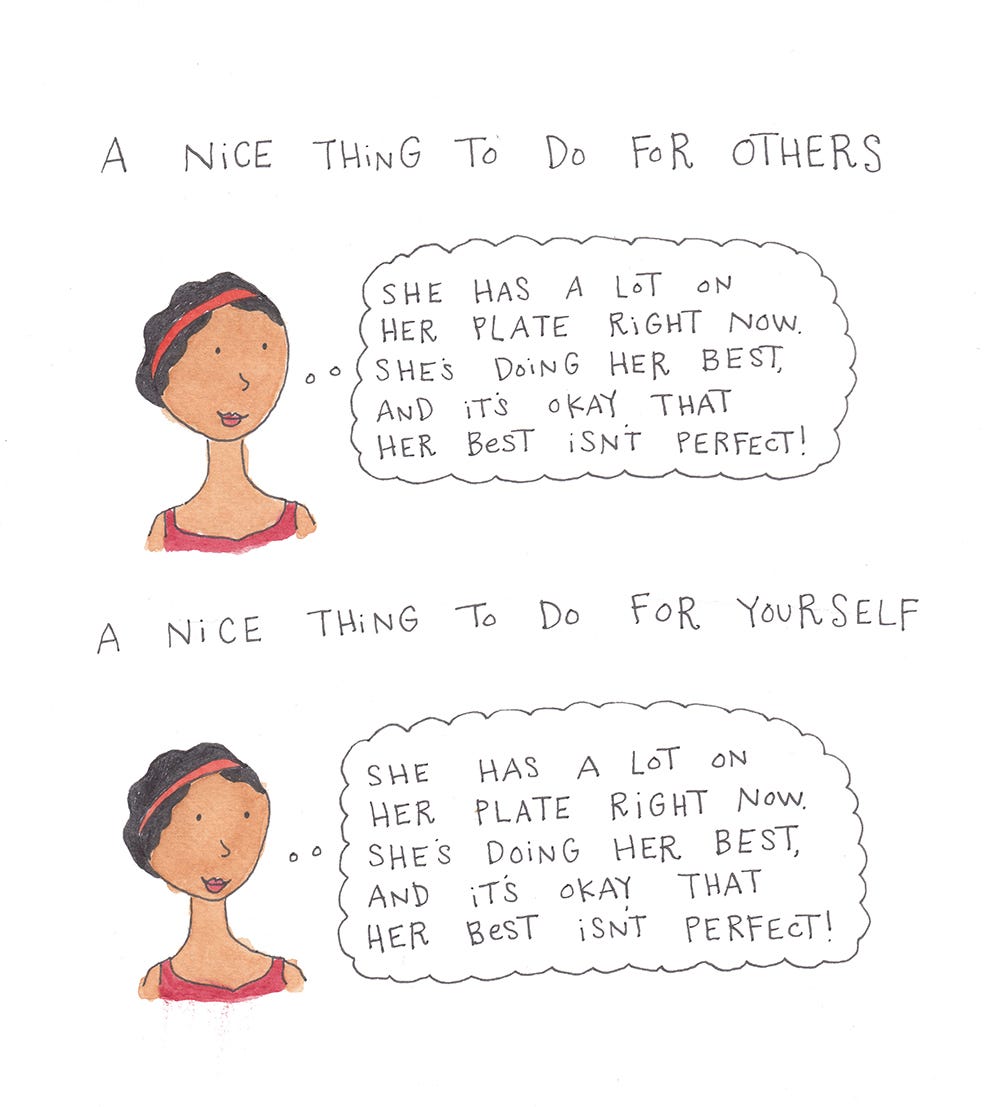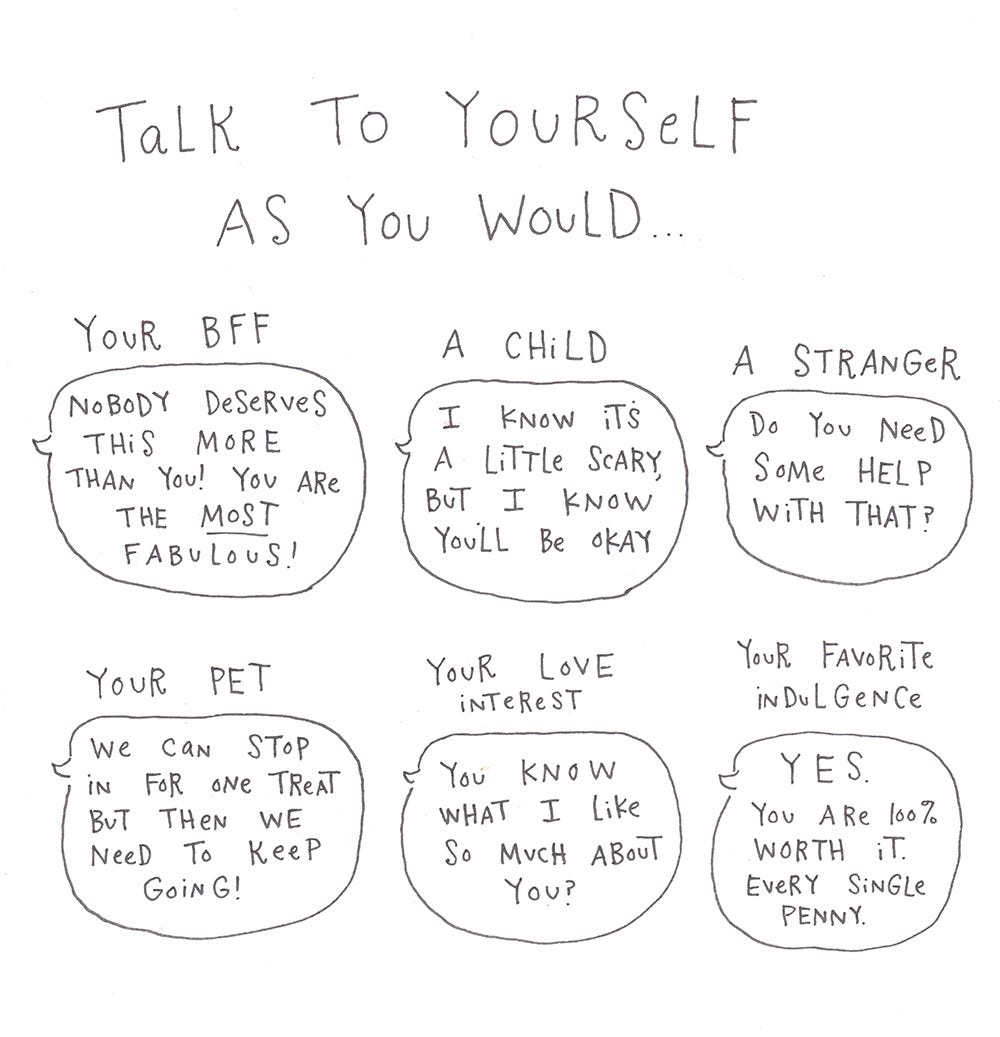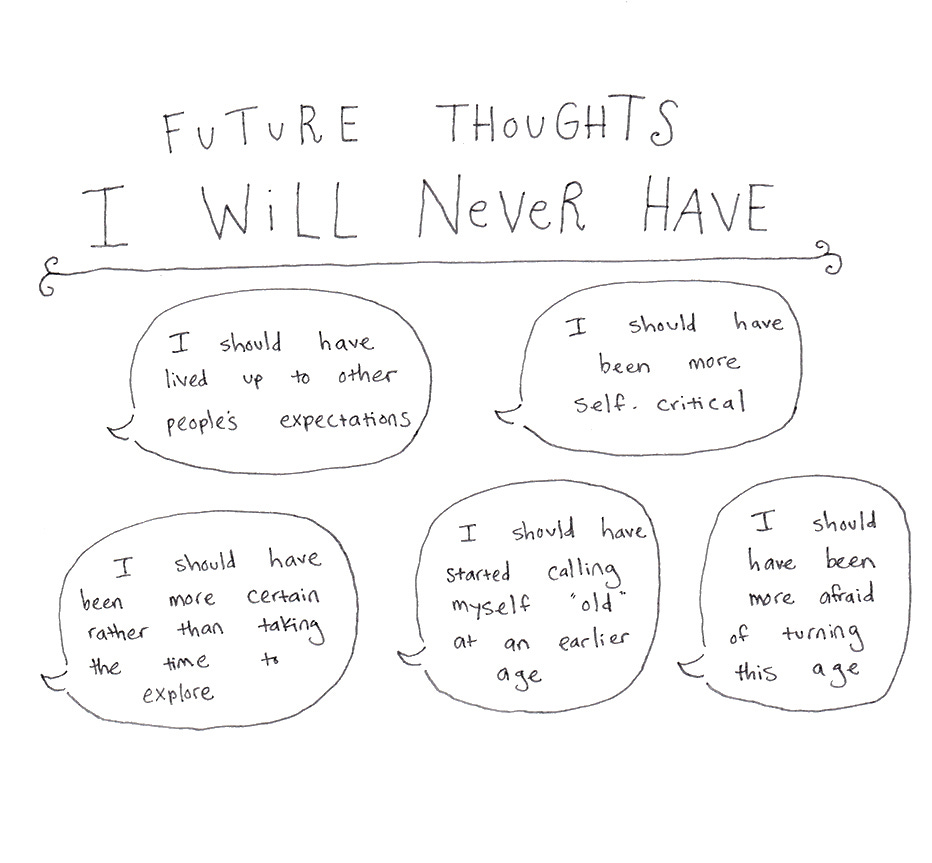How Cancel Culture taught me how to love myself
And feel okay-ish in the world
The day after my wedding, I curled up like a human cashew on my sofa for a couple agonizing hours.
I was in too much pain to move, but not from a hangover or last-minute bridal bootcamp: I was stuck in a quicksand pit of shame.
Long story short, I got really sad about my dad at the end of the night and I got emotional (understatement) and, yada yada, tale as old as time, I felt like I once again “ruined everything” with my big emotions.
In my mind’s eye, the day before was a pure, pristine snow globe holding a perfect life experience to be treated like a fragile treasure, and before I got sad there was no evidence that I was a real human being but rather I was a gracious doll with carved-from-marble skin (shout out to my makeup artist) and a permanent smile, basking under a cat’s cradle of twinkle lights.
Then, I cracked, revealing strong emotion, and the snow globe cracked too.
It was all ruined. I ruined it.
I ruin everything.
Curled up on the couch, I dug my fingernails into my skin, trying to squeeze the shame out of my body. I told myself I deserved to feel the pain of my scratches and the torture of my inner monologue:
Why can’t I just be normal, why can’t I get over it, why do I have to make other people’s lives harder because I can’t deal with my own stuff, why do I always ruin things…
This was one of the many real-life examples that came up recently in therapy when I discovered that I’m not great at, um, loving myself.
(Whatever that means?!)
The thing is, I’m really good at liking myself! My mind is such a fun place to be; I crack myself up and amuse myself all day long with my mental rollicking dinner party full of debates, storytelling, gossiping, and reminiscing. I always have the wild company of my mind, and we get along by ourselves just fine.
But when it comes to, gulp, loving myself?
Well, upon writing that, my mind just quickly supplied a bunch of nervous self-deprecating jokes, so you can tell how comfortable I am with the idea.
When it comes to loving myself (shudder), I’m less like a warm older soft-skinned yoga teacher who is always ready with a cup of tea to chat about whatever’s on your mind…and more like a tough overbearing mother who’s probably a hoot for a poolside piña colada but nags and criticizes the rest of the time.
During moments of shame, nobody can make me feel worse than I can.
So, how is it that Cancel Culture—the communal practice of shaming an individual into reform—actually taught me how to show myself graceful, accepting, sweet, yoga-teacher-with-a-cup-of-tea love?
Because I realized that I had been canceling myself for years. And…guess what: it wasn’t working!
Let’s back up a smidge.
There was a time when I felt vulnerable to the thing I didn’t know had a name.
Funny enough, it was long before I had 1.1 million followers on Instagram. It’s probably when I had about 100K. Nothing to turn my nose up at, but my fear of being “canceled” peaked with self-doubt—not follower number.
During that peak, another (cooler, trendier, edgier) illustrator posted a series of expletive-enhanced Instagram Stories about how I needed to “fucking do better” and “use [my] fucking platform for once” after a high-profile sexual assault case that I hadn’t commented on.
First a friend sent me screenshots of the story—a punch to my gut when I was already slogging through Day 10 of the flu.
Then, message after email after comment after message after message: Why don’t you use your platform for anything except cute drawings, etc, etc, etc, and sometimes much worse.
Flu aside, the messages made me literally throw up. My book had just come out and I was worried people wouldn’t buy it, and people would unfollow me, and people wouldn’t like me, and, and, and, and sometimes much worse.
None of these people—the illustrator included—had ever had so much as an interaction with me at the grocery store.
But I kept wondering: Were they right? Should I have said something? How could I have done something so wrong? Do I actually care about justice? Am I even worthy of expressing myself, posting my art?
And yet, once I had vocabulary for “cancel culture,” I was too often a gleeful bystander! Certain current events activated my fury, and I gloated to watch as seemingly-apathetic influencers got their payback for comments made years ago or lack of engagement in social issues.
As I so often told my own self, they deserved it.
But as quickly as it began, it made me sick. The same kind of sick I got that week when people who didn’t know me told me how worthless I was.
As a Christian*
*or, student-of-Jesus’-radical-teachings, world religions theology nerd, science freak, mystic agnostic universalist with Buddhist tendencies and a profound reverence for indigenous traditions—if you want to get technical…
…it all felt SO wrong.
I was taught that we should rejoice in each other’s humanity.
I was taught that an outcast/sinner was holier than a priest.
I was taught that we should forgive one another, as God forgives us.
I was taught that every saint has a past and every sinner has a future.
It felt so so wrong, but I couldn’t articulate why and I didn’t notice anyone publicly questioning it—besides those who were otherwise occupied with making excuses for the ‘canceled.’ I didn’t relate to them either.
After all, more often than not, those folks had made a transgression. They hurt feelings, or lacked courage, or spoke out of line, or…I’m sure I don’t have to tell you.
But it felt wrong to identify and isolate them based only on the worst thing they’ve ever done. After all, I’m totally against the prison system; in what universe does loneliness and trauma and punitive shame ever contribute to a person’s growth??
It was a year later when I learned that writer and transformative justice queen adrienne maree brown had been saying this the whole time:
Canceling is punishment, and punishment doesn’t stop the cycle of harm, not long term. Cancellation may even be counter-abolitionist…instead of prison bars we place each other in an overflowing box of untouchables—often with no trial—and strip us of past and future, of the complexity of being gifted and troubled, brilliant and broken. We will set down this punitive measure and pick each other up, leaving no traumatized person behind.
I read adrienne’s books, I read Africa Brooke’s work, I realized that there was a long tradition of Black Feminists speaking out against cancelation, and all these writers cracked me open to deeper integrity.
These days, I’m way more interested in conversations that bring us together rather than practices that push people toward the walls.
So, I don’t let myself write anyone off, and that’s tough on my soul and tough on my ego! I challenge myself to keep a truly open mind.
That means I engage in conversations that make me squirm, and I consume content that would probably surprise people, and I spend a LOTTTTT of time reading before I form an opinion—which can appear from the outside as apathy (it’s anything but!).
Weirdly enough, this is how I learned self-love.
Huh?
Well, I realized that I gave the benefit of the doubt to any old Tom Dick or Harry. I don’t believe in punishing someone for life based on one transgression. And I’m confident in saying that not one person has ever changed their behavior because they were shamed into it.
And yet, I don’t apply any of these policies to myself.
I’m a terrible person, I suck, I ruin everything, I make things bad, are just some of the things I used to tell myself when I realized I messed up. I would restrict my own enjoyment, fun, and self-compassion, telling myself that I didn’t deserve it and I should be in pain for whatever I did.
I’ve been giving grace to strangers on the internet for years in the wake of their cancelation, but I couldn’t give just a smidge of that understanding to myself? No wonder I would sometimes feel gleeful watching as others felt overwhelming embarrassment and shame; it’s what I thought I deserved too.
This discrepancy only recently dawned on me. I’m talking, like, a couple months ago.
I just spent years questioning my beliefs about cancel culture, I just wrote a whole book about how we should allow each other to be human, and yet! Here I am: demanding superhuman perfection from myself.
Or else, a plummet into the depths of Shame Town, for as long as it takes for me to feel fully horrible.
I’m humiliated to report that I’ve sent myself directly to Shame Town for “over”-eating, or underdressing, over-emoting, or any of the hundreds of overs-or-unders that crossed the line of ‘acceptable’ in my youth.
Shame is not what I was taught; it’s just how I’ve always dealt with the stains I made on an otherwise ‘perfect’ day or ‘pure’ experience. If I ruined it, I should pay for it.
Only recently did I begin to treat myself like my cat (who is simply being a cat when she knocks over a glass) or like a person who really messed up in the public (who I refuse to reduce to their worst moment).
And it was a revelation.
A couple weeks ago, I led a retreat in North Carolina. I really love writing, but I REALLY love teaching. It’s my favorite thing in the world to do.
There is no place that makes me feel more alive than behind a microphoned podium where I facilitate brave and bright people through creativity exercises and then get to hear what they created.
They teach me far more than I could ever teach them, and it’s the hugest wonderfulest honor. So, it’s hard (understatement) to receive so-called “negative feedback.”
And, in real time, one precious attendee shared with me some feedback that made my tummy perform a gymnastics floor routine and my mind book a one-way ticket to Shame Town for the rest of the day/week/year.
In a former life, I would have been a human cashew stuck for hours in a quicksand of self-flagellation and “you should have known better.”
But in this life, I wasn’t. Even during the stickiest bits of the conversation, I held steady, repeating to myself over and over, “This was a human moment, it’s okay, she’s okay, you’re okay. On to the next.”
Instead of responding with self-centered sulking or self-denying meanness, I could face the situation with full and present accountability, compassion, and a promise to do better. And I will.
Self-cancelation could never!
Just as I trained my brain to see beyond a transgression and acknowledge the full human animal person—their first day of kindergarten, the parental punishment, their wounds, their triumphs, their memories of little pets and enormous sunrises and terrible holidays and sleepless nights—I began training my brain to see beyond my own dumbdumb why-did-I-do-that moments.
I began assessing myself as a full animal human who will OBVIOUSLY and CONSTANTLY goof up, because that’s what humans do. There’s a big range of human-goof-ups here of course, but shame is never going to work.
Not for me, not for you, and not for the person we hate most of all.
I have no idea how to deal with these people we really disagree with. Your guess is as good as mine.
But I do know that being softer and gentler and first-day-of-kindergarten-er on ourselves is the first step, because we’ll remember how it can be a full-time job to find a place where we feel okay-ish in the world.
If I have any legacy, I want to be known as someone who made people feel okay-ish in the world. And maybe, maybe, maybe, encouraged others to do the same.





Mari, your work has often been a balm and source of bright hope in my life! Grateful for you, your heart, and your art. This post, specifically, has arrived at just the right time. I’ve been dealing with a lot lately and trying to still show up and add love to the world. Social media has been a source of forgetting to love myself lately. Thank you for this!
That just might be my favorite definition of Christian I’ve ever seen & deeply resonate with! I’m currently going through Richard Rhor’s Living School and it has been such a profound, beautiful, slightly terrifying yet gentle experience. Thanks for always putting into words such deeply human experiences 💛💛